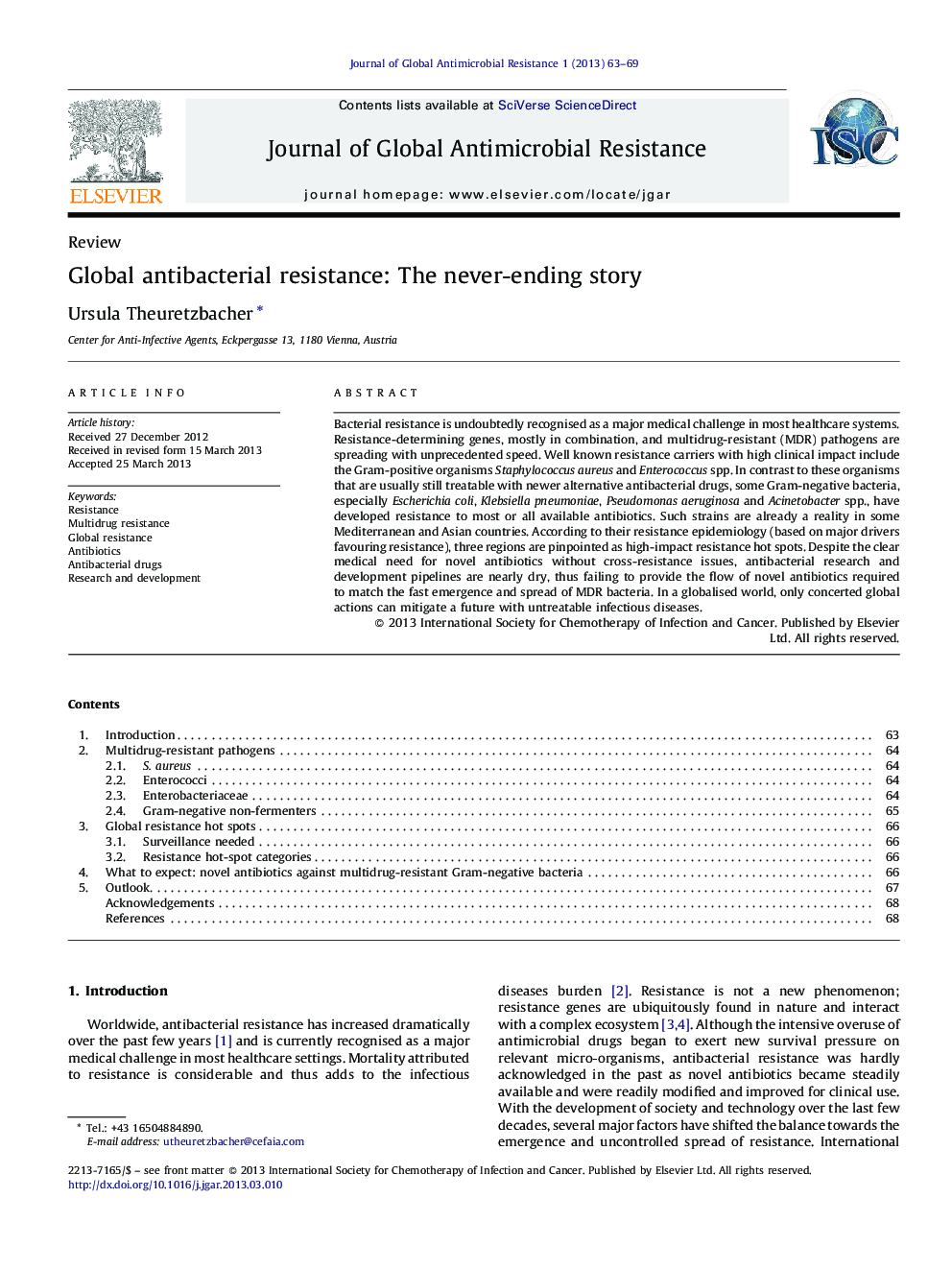| Article ID | Journal | Published Year | Pages | File Type |
|---|---|---|---|---|
| 3405784 | Journal of Global Antimicrobial Resistance | 2013 | 7 Pages |
Bacterial resistance is undoubtedly recognised as a major medical challenge in most healthcare systems. Resistance-determining genes, mostly in combination, and multidrug-resistant (MDR) pathogens are spreading with unprecedented speed. Well known resistance carriers with high clinical impact include the Gram-positive organisms Staphylococcus aureus and Enterococcus spp. In contrast to these organisms that are usually still treatable with newer alternative antibacterial drugs, some Gram-negative bacteria, especially Escherichia coli, Klebsiella pneumoniae, Pseudomonas aeruginosa and Acinetobacter spp., have developed resistance to most or all available antibiotics. Such strains are already a reality in some Mediterranean and Asian countries. According to their resistance epidemiology (based on major drivers favouring resistance), three regions are pinpointed as high-impact resistance hot spots. Despite the clear medical need for novel antibiotics without cross-resistance issues, antibacterial research and development pipelines are nearly dry, thus failing to provide the flow of novel antibiotics required to match the fast emergence and spread of MDR bacteria. In a globalised world, only concerted global actions can mitigate a future with untreatable infectious diseases.
